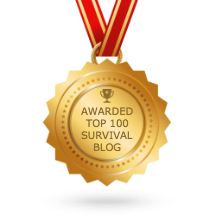Use a combination of methods to save on food prices.
Food prices are going up. Blame it on the weather, gas prices, politics, or whatever, prices will always go up - sometimes faster, sometimes slower, prices will always go up. Instead of constantly trying to adjust your budget upwards, take another road... adjust your food skills to make your food budget work.
The only way to truly save on food is to use several different tactics at once. Don't get hung up on coupons or cooking from scratch or sales prices to the exclusion of other methods. The more ways you cut your food bill, the more money you can save.
Usually the first thing to consider is shopping for food. Saving at the time you shop is a priority. You must be aware of sales psychology to win the battle and you must be aware of the little and not so little tricks that food distributors use to get more of your money.
Watch out when they change package design, because they may be changing size and price, too.
If you find a good sale, stock up as much as you can without overdoing it. Don't buy at 10% off then find out it's 25% off the next week. It's hard to see how this works if you don't create a grocery price book . It's essential to your shopping decisions to keep a record of prices and sizes that will help you know if you're getting bargain prices or not.
Only use coupons on food you would buy anyway. You're not saving anything if you buy something you don't normally eat. If you use a coupon on a brand name, be sure it still doesn't cost more than the store brand. Call a spade a spade. If you want to use a coupon on something you seldom or never buy, call it a splurge or an experiment. It's not a savings.
Other places than grocery stores sell food. Look around. Convenience stores sometimes have lower prices on milk or bread cheaper than chain stores, so keep alert. Take advantage of every opportunity you find for getting food cheaply or free. There may be more opportunities than you realize - including the ones you create for yourself!
Grow your own food whenever and however it's possible. You might be pleasantly surprised at how much you really can grow, even if you live in a high rise apartment. A windowsill will grow herbs, garlic and chives... why buy them? If you have just a little room, container gardening can get you lots of cheap food.
Don't forget about the wild (free) food that's abundant almost anywhere - even in a city park. (But be careful of chemicals and animal droppings.)
Getting all that food won't do you much good if you don't store it properly. Even if you can't do a lot, do what you can. Find a way to not waste it.
After a good meal from your cheap or free food, use leftovers - all of them - creatively for even more savings. What you don't throw out is what you don't have to buy. You may even be throwing out some things without realizing they're edible. Don't throw away stems, leaves, parings, or even bones unless you're absolutely sure they're of no value.
Finally, make your own bread. There's nothing magic about it, although the taste sure seems like it! You can save a lot on the price of bread by baking your own. Here's a "never fail" recipe/method for doing it for beginners and old hands alike: Bread Making for Beginners and Others
Then save even more by skipping the commercial yeast. It doesn't have to be an old family secret and it's fine if it's NOT from somewhere else. Using sourdough starter is a little different, but not much. A time or two and you'll be comfortable with the method.
More ways to save:
Use cheapest cuts of meat and tenderize by marinating and/or cooking methods like boiling or slow roasting.
Use cheese, etc., for protein instead of meat.
Buy meat by the serving, not by the pound.
Have a vegetarian meal now and then even if you're not a vegetarian. Meat is usually the most expensive part of a meal. Eggs and peanut butter are cheaper protein than meat.
Never go shopping when you're hungry
Make a list, take a list, buy from a list
Check the sales circulars before you shop
Avoid junk food of any kind
Avoid "convenience food" - don't pay for something you can do yourself
Eat seasonally. No watermelon in January, no apples in July.
Eat regionally. Lobsters don't grow in the Rockies and beef doesn't grow in New York City. Limit the food on which you have to pay shipping.
Using every method, trick and tip you can find, you CAN keep your food budget under control.
Monday, July 19, 2010
Subscribe to:
Post Comments (Atom)
Affiliate Disclosure: I am grateful to be of service and bring you content free of charge. In order to do this, please note that when you click links and purchase items, in most (not all) cases I will receive a referral commission. Your support in purchasing through these links enables me to share more information and get closer to getting my family totally off-grid and on our own piece of land. This will let me share more and more information to allow , hopefully, for you to become more self-sufficient and able to become more prepared by reading my blog and purchasing items that I share with you that will help you. Thank you! :)




0 comments:
Post a Comment